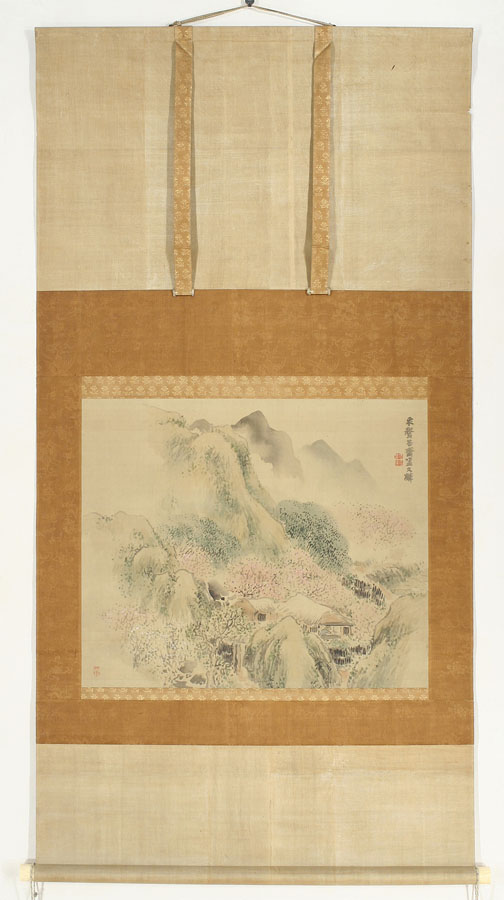Shijô
Spring landscapeSigned: Awakoe Tôsai Shio Bunrin
Seals: Bunrin Shion, Chikusai
Technique: colours on silk 46.4 x 56.2
Mounting: dark ocre damask and bronze silk 138.5x 71
Condition: good
Bunrin explored the boundaries of the Maruyama-Shijô style and searched for new interpretations in the Nanga style. He also experimented with new painting methods. Through Kôno Bairei (1844-95), his major pupil, his influence reached well into the twentieth century. Bunrin became the createor of Nihonga.
Bunrin’s father was in the service of the Takatsukase family. When in 1820 both his parents died he was sent to Kyoto to study painting. The head of the Takatsukase family arranged a place in Toyohiko’s studio (together with a lifetime allowance of rice).
Bunrin’s connection with the Takatsukase family, which was connected with the imperial court, might have had consequences if he had not moved to a rural village in Shiga from where he travelled and visited temples to study their collections of Ming paintings. Meanwhile he remained in contact with some of the imprisoned key figures of the loyalist groups.
Reference:
Berry & Morioka ‘99 pp. 58-62
Berry & Morioka ‘08 # 66
Conant p. 321
Hillier pp. 335-338
Roberts p. 11
Araki pp. 689-90
Kyoto '98 p. 280
Price: ON REQUEST

